Jeremie Averous's Blog, page 22
October 20, 2020
How Generalists Are Necessary for the Collaborative Age
I recommend highly the book ‘Range: Why Generalists Triumph in a Specialized World‘ by David Epstein. It has provided quite a few interesting insights for me, which will be the subject of a few following posts.
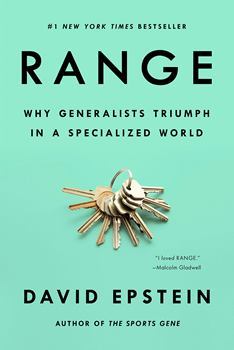
For those that have been following this blog, I have expressed many times that the Collaborative Age calls for generalists, contrary to the specialists fostered by the Industrial Age (for example here and here). This book confirms this hint in a very convincing way and goes beyond to show that complex systems can only be dealt with by generalists. And that being a specialist can be quite dangerous in terms of decision-making beyond the bounds of specialization validity.
“Highly credentialed experts can become so narrow-minded that they actually get worse with experience, even while becoming more confident— a dangerous combination.”
And specialization can indeed lead to poor real-life outcomes. For example, “One revelation in the aftermath of the 2008 global financial crisis was the degree of segregation within big banks. Legions of specialized groups optimizing risk for their own tiny pieces of the big picture created a catastrophic whole. To make matters worse, responses to the crisis betrayed a dizzying degree of specialization-induced perversity.”
This realization is pervading more and more organisations and society when it comes to choosing someone to lead a complex endeavor. The best candidates are generalists, or at least people who have been exposed to many things beyond their main area of interest. “the most common [path to excellence] was a sampling period, often lightly structured with some lessons and a breadth of instruments and activities, followed only later by a narrowing of focus, increased structure, and an explosion of practice volume.”
I have always been convinced, and I am more and more convinced, that the rounded individual exposed to largely varied experiences and fields of knowledge is the new type of leader we will be looking for in an increasingly complex Collective Age. And this is probably the biggest challenge of our learning and academic institutions today.
The post How Generalists Are Necessary for the Collaborative Age first appeared on The Fourth Revolution Blog.

October 17, 2020
How the Collaborative Age Value Is In The Platform
In this post ‘Why newspapers fail‘, Frederic Filloux mentions a few reasons. The one which has struck me is that they concentrated on the wrong thing: diffusion rather than aggregation and development of a platform, to reap the value of user data.
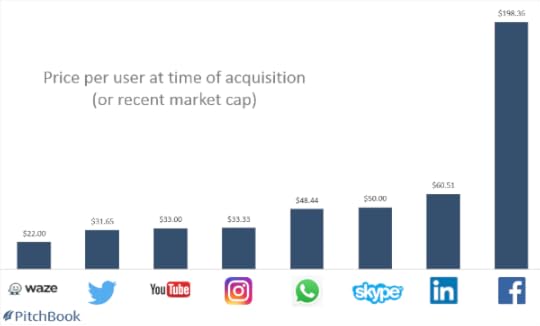
“The news industry took the opposite stance. Deprived of customers’ data, it found itself blind to what kind of online services the audience was craving. As a result, publishers left numerous markets wide open, like free classified and auctions taken by Craigslist and eBay (before Schibsted set in), large news aggregators and the entire system that flourished thanks to RSS feeds. It is actually funny to see many news outlets now engaged in costly acquisitions to get back the services they should have developed in the first place.”
Today the value lies in customer data, and those platforms and links in the chain that have access generate the most value. And this explains the value of social network companies and other platforms like Google. All other services are doomed to be dependent from the platform-gods.
If you want to create value today, you need eventually to produce a platform that will concentrate user data; the real source of value in this early Collaborative Age!
The post How the Collaborative Age Value Is In The Platform first appeared on The Fourth Revolution Blog.

October 15, 2020
How We Need to Continue Creating Even Without Recognition
This post by Seth Godin ‘Creation/recognition‘ reminds us of the sometimes huge time gap between creation and recognition.

“There’s often a significant lag between the creation of something useful and when the market recognizes it. That’s an opportunity for speculators and investors, who can buy before the recognition happens.” And this applies to all fields of creation, from start-up companies to artists to writers to experts in a specific field.
But, and that’s the main point here, “it’s an opportunity or a trap for creators, who might get disheartened about the lack of applause and upside immediately after they’ve created something.”
The point of course here is not to look outside for recognition, but focus on the art and the purpose to deliver our best. Notwithstanding a possible time lag, if we give our best and continue to improve recognition will come eventually. Let’s not be disheartened by a lack of response of the world to our creations. Our inner fire will not be satisfied anyway. Let’s strive on to change the world.
The post How We Need to Continue Creating Even Without Recognition first appeared on The Fourth Revolution Blog.

October 13, 2020
How to Deal with Stress
Following our previous post on ‘How You Should Start By Being Cheerful‘, this post by Leo Babauta tackles a related topic: ‘A Guide to Letting Go of Stress‘.

Leo Babuta reminds us what is the real reason for our stress: “Things are out of control, not orderly, not simple, full of interruptions and unplanned events, health problems and accidents, and things never go as we planned or imagined. But this is the way the world is — the stress comes not because the world is messy and chaotic, but because we desire it to be different than it is.”
This is a very important statement, and one that we tend to forget. Stress is generated by the difference between reality and expectations. Since there are quite many things we can’t change in reality, we need to manage our expectations and ideals (the alternative, to alter reality to align with our expectations, is not a sustainable solution).
Therefore the recommended practice is to put together the conditions for self-awareness of this misalignment between reality and expectations, and let go of that difference (more details in the post). And then, “Even in moments of chaos, you can be free, and even appreciate the beauty of the chaos.”
Let’s remember that stress is indeed a misalignment between a messy reality and inner hopes and expectations, and that the solution is to realign both by letting go.
The post How to Deal with Stress first appeared on The Fourth Revolution Blog.

October 10, 2020
How You Should Start By Being Cheerful
This excellent post by Gapingvoid makes an essential point about cheerfulness and success. Successful people are cheerful, but actually they were probably cheerful and optimistic quite before being successful.

The research at the origin of this HBR article ‘The Financial Upside of Being an Optimist‘ “found that when it comes to money, optimists are more likely to make smart moves and reap the benefits“. This translates into much more successful financial situations.
Now an important point here is that in this research optimism is not just naive. It is more rational optimism. “We define optimism as the expectation of good things to happen, and the belief that behavior matters, especially in the face of challenges. A rational optimist is able to see reality for what it is, while maintaining the belief that actions can improve the situation“
As the Gapingvoid post summarizes: “Simply put, our ability to stay cheerful and optimistic helps us go the extra mile.” Become cheerful, and stay cheerful and rationally optimistic!
The post How You Should Start By Being Cheerful first appeared on The Fourth Revolution Blog.

October 8, 2020
How You Should Always Give It At Least a Second Try
In Kevin Kelly’s ‘68 bits of unsolicited advice‘, one bit of wisdom about being turned down raised my interest: “Don’t take it personally when someone turns you down. Assume they are like you: busy, occupied, distracted. Try again later. It’s amazing how often a second try works“
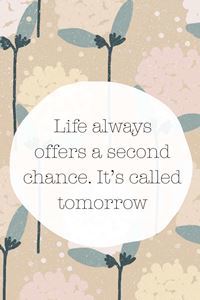
This resonates indeed with my experience, and sometimes actually you’ll need to try again for a few more times than just a second one. And it is true that many people having experienced rejection will tend not even to give it a second change. Overcoming this feeling of rejection is an essential skill in society and is becoming even more important as we are all becoming more independent economic actors.
It is quite true that rejection is only a feeling and that many times, it is not just rejection, but that we tried to connect at an inadequate moment; and that this impression of indifference and rejection is just an artefact of other people being too busy to notice.
Next time you’ll feel rejected, brush it away and try a second time. And a third, fourth time if needed, at least until you get a clear reaction.
The post How You Should Always Give It At Least a Second Try first appeared on The Fourth Revolution Blog.

October 6, 2020
How Zero Interest Rates May Affect the Innovation Economy
This very interesting post ‘The Social Consequences of Zero Interest Rates‘ examines the possible long term impact of this situation on innovation and the economy, taking as a model Japan where this situation has been prevalent for a longer time than anywhere else.

The article shows that innovation has decreased significantly in Japan in the last decades, since the 1990s which mark the end of Japan post-war catch-up and development phase. “Innovation ultimately has a lot to do with time preference in economic terms. Real innovations often only pay off years later, which is why innovative companies have to be prepared for a long haul. Zero interest rates counteract the power of innovation, because they almost always go hand in hand with higher time preference.” At the same time, wages stagnate and part-time employment grows. According to the author, all this negative evolution could be associated with high public debt / low interest rates.
This approach is interesting, however I tend to observe on the contrary that faced with very low interest rates, clever money tends to look for other places with potential gains and innovative startups tend to be quite awash with money these days – raising funds has rarely been as easy. Money also tends to get invested in shares and other high risk investments (which explains the high levels of the share market). There are quite other factors at work in Japan that could explain decreased innovation, for example the rigidity of the labour market and the traditional industrial age employment approaches.
What is certain, is that low interest rates increase the price of assets and proportionately make it more difficult to acquire them on the basis of wages, decreasing the actual purchasing power of people and increasing inequality. However, the impact on innovation is not as obvious to me. What are your views?
The post How Zero Interest Rates May Affect the Innovation Economy first appeared on The Fourth Revolution Blog.

October 3, 2020
How Deadlines Contribute to Avoid Excessive Perfectionism
In this excellent post ‘68 Bits of Unsolicited Advice‘ Kevin Kelly shares his wisdom. Some of those bits caught my eye, such as this one: “Always demand a deadline. A deadline weeds out the extraneous and the ordinary. It prevents you from trying to make it perfect, so you have to make it different. Different is better.”

I find that it is an interesting take about deadlines. Deadlines is not just a way to improve productivity and oblige to be focused on delivering, but also it is a way to make sure we are not too perfectionist.
Perfectionism can have a dark side (it is never as good as it could be, therefore it never gets released to the world). Seeing deadlines as a way to force a good enough quality is an interesting perspective.
Even more reasons now to set deadlines!
The post How Deadlines Contribute to Avoid Excessive Perfectionism first appeared on The Fourth Revolution Blog.

October 1, 2020
What Would You Do If You Were Not Afraid
I read recently this excellent little book by Oprah Winfrey ‘What I Know for Sure‘. Not living in the US I am not fully familiar with her work on TV but her book is certainly the expression of a very spiritual person.
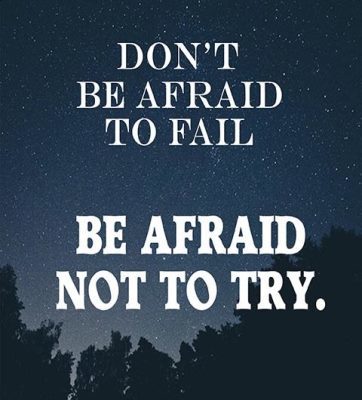
One of the points she makes is about facing a difficult decision. “Whenever I’m faced with a difficult decision , I ask myself : What would I do if I weren’t afraid of making a mistake , feeling rejected , looking foolish , or being alone ? I know for sure that when you remove the fear , the answer you’ve been searching for comes into focus“
And, more powerful even “And as you walk into what you fear , you should know for sure that your deepest struggle can , if you’re willing and open , produce your greatest strength”
That’s it – always ask the question, what would I do if I was not afraid? And this is certainly a powerful question that can create enormous strength.
I need to remember this more often!
The post What Would You Do If You Were Not Afraid first appeared on The Fourth Revolution Blog.

September 29, 2020
How to Rebuild Your Missing Best Friend with AI
I found this post inspiring: ‘SPEAK, MEMORY – When her best friend died, she rebuilt him using artificial intelligence‘. The approach is quite easy: build a bot with AI, feed all the messages and interactions with your past best friend, and let AI work out its miracle to provide you with interaction.
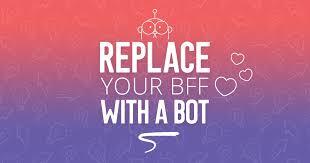
I find the idea exciting and unsettling at the same time. This solution offers a kind of immortality (at least on the basis of past expression), but also poses questions about what AI will really produce with its limitations.
In the post it seems that this approach has helped the person overcome its grief, but it may also create a situation where grieving will be suspended because of the impression to have your friend still there with you.
Therefore, this is an idea to be handled with caution. At the same time, we can expect that the concept will become more prevalent with an increased performance of AI and also an increased amount of data generated digitally during our lifetimes.
We are moving further toward a digital world inhabited by multiple versions of ourselves, some of them will survive our death. Interesting world!
The post How to Rebuild Your Missing Best Friend with AI first appeared on The Fourth Revolution Blog.




